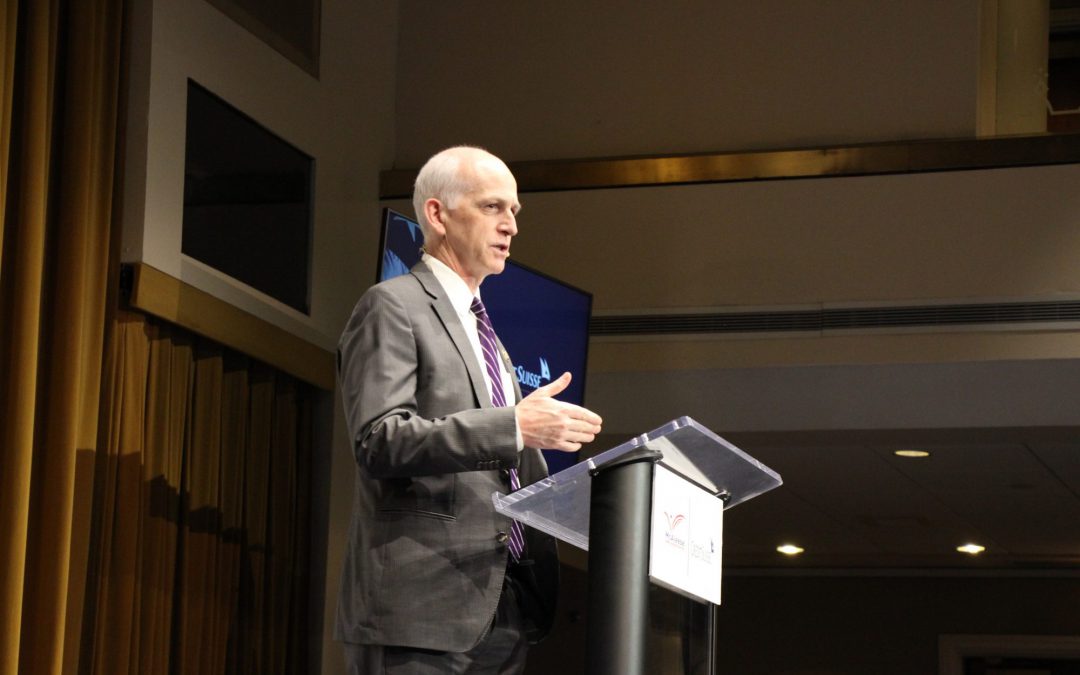WASHINGTON – House Armed Services Committee chairman Adam Smith ridiculed President Donald Trump’s proposed $4.75 trillion budget Wednesday in a speech before defense officials and investors, saying the Pentagon is being left in the dark as to how their funds would be allocated.
Smith said the budget, submitted to Congress on Monday, has no hope of passing the House because its priorities are misplaced.
“Stick to budget caps while also funding defense?” Smith said. “It’s not going to happen.”
The 2011 Budget Control Act sets caps on defense and nondefense spending, and requires reductions in spending if there is no deficit control agreement.
Smith criticized Trump’s plan to cut domestic spending while increasing defense funds by 5 percent, including adding $8.6 billion for a border wall as well as $3.6 billion to replenish military constructions funded he used under his national emergency order. He said the White House is “playing games” with its proposal.
“The single best thing we can do is pass appropriations bills so they actually know how they’re paying for stuff,” Smith said.
Smith rejected wholesale spending cuts required under the Budget Control Act, instead favoring a more targeted approach.
“Across-the-board cuts I’ve always found stupid,” he said. “Hopefully we have an idea of what’s important and what’s not.”
Senior military leaders also discussed their budget priorities, including a transition away from an anti-terror approach and toward a great power competition initiative in an effort to keep pace with Russia and China in space and cyber.
To achieve that goal, Chief of Naval Operations Adm. John Richardson and Marine Corps Commandant Gen. Robert Neller advocated for greater modernization in the armed forces.
“We’ve got to be agile,” Richardson said. “We’ve got to think sustainably.”
Richardson said advances in technology have been the Navy’s “strategic Achilles heel,” adding training alone will not be sufficient to defeat an enemy.
“When we’re relying on the quality of our training, that’s far too close a margin,” he said.
Richardson said the Navy is increasing the use of unmanned aircraft and seacraft, as well as introducing augmented reality programs to train sailors across the country at the same time.
Neller said the Marines need more ships, but also improvements to existing ships.
He also called for more awareness of where the military has to improve.
“We tend not to change our techniques until something really bad happens,” he said. “We may have been able to survive that in the past, but in the future, I’m not sure that will be the case.”


